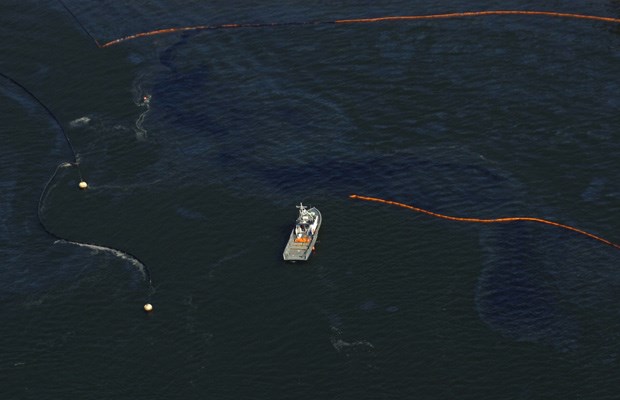Kinder Morgan is under fire for suggesting oil spills can be good for the economy, and Burnaby's mayor is none too pleased.
Buried in the 15,000-page National Energy Board application to expand the Trans Mountain pipeline, Kinder Morgan makes the argument that oil spills can have benefits.
"Marine spills can have both positive and negative effects on local and regional economies over the short- and long-term," the application states. "Spill response and clean-up creates business and employment opportunities for affected communities, regions, and clean-up service providers, particularly in those communities where spill response equipment is, or would be, staged."
That's an angle that doesn't sit well with Mayor Derek Corrigan, who called the idea "ludicrous."
"We thought it typified the kind of arrogant and insensitive nature of the oil companies and the oil distributors," he told the NOW. "When you're in a position of having to try to rectify environmental damage and trying to fix a problem that is often almost unfixable, that's not positive work."
Michael Davis, a senior director with Kinder Morgan, said the information was taken out of context from a very thorough 15,000-page application.
"It was not written to be a standalone piece and in no way reflects any sort of appetite or acceptance for spills," Davis told the NOW. "The piece from this large, thorough application is pulled out, out of context, and is being used to suggest we might have some tolerance or acceptance for spills, and that's not the case. I would say that borders on ridiculous."
Meanwhile, the City of Burnaby, one of the intervenors in the pipeline hearing, is set to file roughly 1,500 questions to Kinder Morgan early next week. The questions are part of the first round of information requests for the hearing. The city gathered input from local citizens and is planning to file the questions early, so other intervenors can see what information has already been requested, Corrigan explained.



